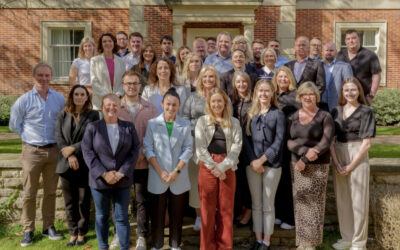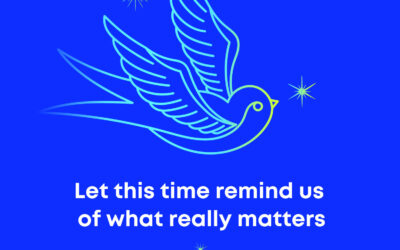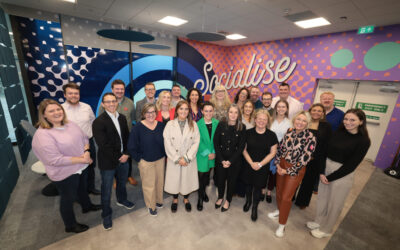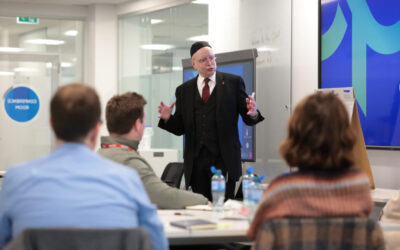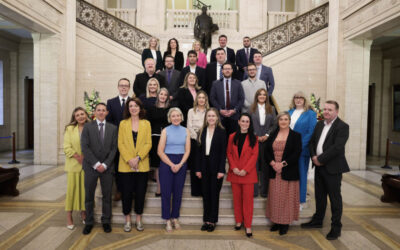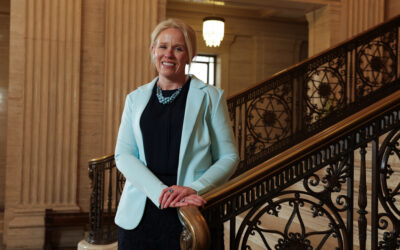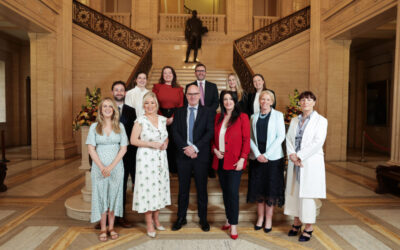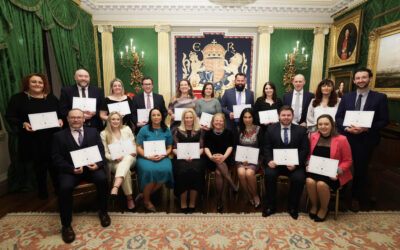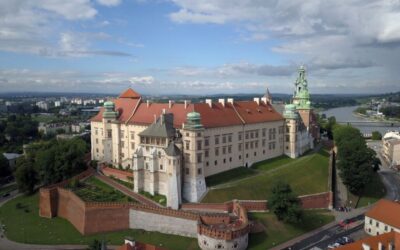In 2024, the Fellowship Programme continued to thrive, highlighted by our exceptional Fellows and notable residentials in Dublin and Oxford. In April, we proudly celebrated the graduation of the Class of 2024 at Hillsborough Castle. Following a well-deserved break, we...
Posts from category:

A year in review: CDP in 2024
In 2024, the Fellowship Programme continued to thrive, highlighted by our exceptional Fellows and notable residentials in Dublin and Oxford. In April, we proudly celebrated the graduation of the Class of 2024 at Hillsborough Castle. Following a well-deserved break, we...
Merry Christmas and a Happy New Year!
As we gather with loved ones to celebrate this festive season, let us take a moment to reflect on the world we share. We live in a world that can often feel divided, cruel, and unfair. Yet, kindness, compassion, and empathy are gifts we all can give this Christmas;...
Fellows reflect at midway point of Centre for Democracy and Peace’s Leadership Programme
The current Fellowship is the largest cohort to date—28 leaders representing a diverse range of sectors. These include MLAs and councillors from the world of politics, CEOs and directors from the business world, as well as participants from charities, health,...
Parliamentary Commissioner for Standards, Daniel Greenberg CB, visits Northern Ireland to guide Centre for Democracy and Peace’s Fellows on Principles of Public Life
As the official responsible for upholding MPs’ conduct and propriety since January 2023, Greenberg’s engagement focused on fostering ethical leadership and exploring the critical role of trust in both public and private sectors. The Fellowship Programme, now in its...
Politicians, senior business leaders and public servants among 28 leaders announced as fourth cohort of the Fellowship Programme
Twenty-eight people who are already contributing significantly in political, business, civic society and public sector were selected after a competitive process to find the next stand-out leaders in the region. They were officially sworn in as the Class of 2025 in a...
Reimagining leadership: being open to insight will help us pave the way to a brighter future
Dorinnia Carville, Comptroller and Auditor General, Northern Ireland Audit Office Leadership is often perceived as a final destination, a pinnacle reached after years of experience and hard work. However, I believe it’s how you approach the journey that sets you apart...
An opportunity to reimagine leadership: Northern Irish leaders urged to apply for Fellowship
The Centre for Democracy and Peace Building has opened applications for its 2024/25 Fellowship Programme for leaders in politics, business, and civic society in Northern Ireland. The Centre for Democracy and Peace Building has opened applications for its 2024/25...
Fellowship 2023/24 Graduation
On Thursday 14th April, we were honoured to join our 2023/24 Fellows at Hillsborough Castle for their graduation ceremony. It was an evening of celebration, as we looked back on the Fellows’ meaningful and insightful contributions over the last year. It was...
The Wawel Royal Castle in Krakow and the Victoria and Albert Museum in London inspiring culture and international collaboration
The Wawel Royal Castle in Krakow is set to host an innovative seminar on "Collecting, Curating, Conservation and Collaboration" in partnership with the Victoria and Albert Museum (V&A) in London. This landmark event, organised by the Centre for Democracy and Peace...
